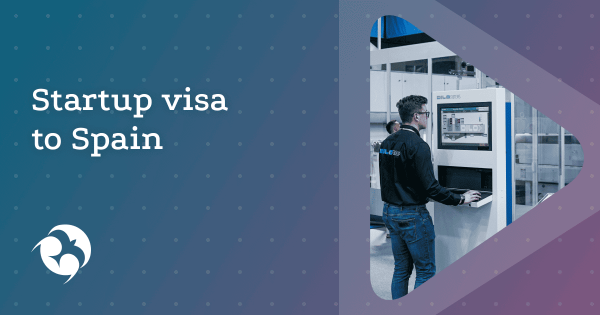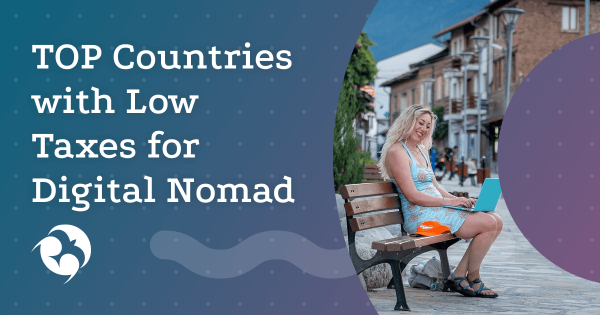The Startup visa allows you to move to Spain and legally engage in entrepreneurial activity for a period of 3 years or more. The residence began to be issued according to Law 14/2013 of September 27, 2013 to support entrepreneurs back in 2013. In 2021, the Spanish government simplified the procedure for obtaining a residence permit to get out of the pandemic with the least losses for the economy. According to the Law on the Business Ecosystem, foreigners only need a scalable idea with digital calculations, € 31,752 per applicant.
According to the Minister of Economy, the bill is aimed at promoting startups and developing small and medium-sized technological businesses. It contains social and tax benefits, and the right to government support programs. The law concerns the heads of developing companies, qualified specialists, consultants providing services or engaged in research and development. It is suitable for the authors of innovative business ideas, entrepreneurs seeking to relocate a working business to Spain together with their team and family. The government has also established order PCM/825/2023 for obtaining an entrepreneurial certificate.
Advantages and prospects of a startup visa
Spain aspires to become a center of technological advancements. It needs talented foreign entrepreneurs to increase its competitiveness in the European market and creates conditions for them. Residencia para emprendedores allows foreigners to do business in a country with a favorable business climate and earn in euros. Advantages:
- access to the attractive EU business ecosystem;
- profitable purchase of company shares by team members;
- interaction with partners and customers in Europe;
- low income tax: 15% for 4 years;
- deferred taxes for the first 2 years;
- receiving 30-50% deductions when investing 100,000euros in a business;
- obtaining permanent residence after 5 years naturalization.
Features of the Spanish startup visa
This type is issued for a year based on a business plan, then for 2 years with an extension for the same amount under a simplified program. Applicants are required to prepare a detailed technology-oriented business plan according to the requirements of ENISA, a state—owned company that supports innovative initiatives. When presenting the strategy, applicants indicate:
- sales forecasts for 3 years;
- competing companies;
- degree of scalability;
- planned promotional events;
- innovative aspects of a business idea;
- supply and demand analysis;
- competitive advantages;
- sources of financing;
- information about key clients;
- LinkedIn profiles are added.
Startups who offer new products and services to the public and create jobs without strict requirements for their number can count on a positive decision. Promising areas: agriculture, IT, energy. The opening of beauty salons, shops, and catering outlets is not of interest. Published on the ENISA website guide to obtaining an entrepreneur’s certificate.
Comparison with other visas
Spain issues long-term residence permits for various reasons that contain a number of legal requirements for foreigners. The most in demand are students and workers. Qualified professionals most often apply for entrepreneurial and digital nomad visas. Digital nomads employed in foreign companies with incomes of 2,649euros without deduction of taxes come here for remote work. The authorities allow you to earn only 20% in the country. According to the law, the term is extended to a total of 5 years. After the expiration of the visas/Residence permit applications for permanent residence are approved from nomads registered as sole proprietors, self-employed, as well as with civil law contracts.
Rights and obligations
By default, startup visa holders have rights that allow them to adapt more quickly to changing requirements. Main:
- the opportunity to visit EU countries;
- living in any territorial district;
- receiving medical care and education;
- participating in business support programs.
After moving, foreigners do not have to register a company right away. Holders of annual Schengen visas have enough time to prepare for starting a business. Specialists can officially work for a local company for 40 hours a week. At the same time, residents are obliged to obey the migration laws of the country, pay taxes, and not violate public order.
Requirements for obtaining a startup visa
The conditions for applicants are quite loyal and differ little from the requirements of other EU countries. Relocants aged 18+ can apply for residences. The upper age limit has not been set. Financially secure people are given entrepreneurial residence permits even at 60+.
First of all, third-country nationals must prove their financial worth. The deposit per person is €31,752. For comparison, the SMI (minimum wage) in Spain for January 2025 was 1,134euros. When moving with a family, you need to add 11,910 € per spouse and almost 4,000€ per child. The threshold amount of entry into the program is adjusted depending on the SMI. Other conditions:
- positive visa history;
- no criminal record for adult applicants for 5 years;
- availability of sin copagos (medical insurance);
- education and relevant experience;
- approval of ENISA candidacy;
- confirmation of legal capacity;
- permanent address residence in the consular district.
Required documents
To submit, applicants need to prepare a package of papers in Spanish, certify copies:
- passport and entry visa;
- Titular questionnaires filled out by hand for each applicant;
- border stamp and declaration of entry;
- business plan plus a scanned download on the ENISA website;
- non-criminal record certificates with jurado transfer and apostille;
- statements of the deposit amount;
- fee payment receipt on form 790.
When a family moves in, documents are added to the case to confirm kinship: marriage and birth certificates, optional power of attorney for the person to sign.
The application process is step-by-step
The order of registration:
- Preliminary preparation. Drawing up a business plan according to a template, collecting documents according to a list (14 days).
- Consultation. Submission of the project to the UGE agency for a preliminary assessment and confirmation of the startup’s economic feasibility (up to 2 months).
- Sending a questionnaire and a dossier to the Spanish diplomatic mission at home, passing an interview to discuss the details of the plan (up to 60 days).
- Flight. Obtaining a long-term entry visa. Immigration, rent/purchase of housing upon arrival.
- Registration on the ENISA website, filling out the form according to the instructions in Spanish/English. Uploading a plan with calculations for transmission to the Strategic Groups department of UGE.
- Obtaining consent and registering a startup (maximum 4 weeks).
- Registration of a residence permit on the UGE website. Submission of the dossier after authorization and assignment of the NIE. The number is automatically printed on the payment card after payment of the fee through the ATM.
- Applying for cards MI-TIE and EX17. Fingerprint record on the website or at the police station. Receiving the approval message, waiting for the resident card for 5 days.
Family members are allowed to apply for statuses together with applicants.
Terms and cost of registration
It takes no more than 3 months to apply for a visa and residence permit, but due to different circumstances, the deadlines may vary. Migration lawyers recommend starting the process in advance, following the instructions exactly. The process is costly:
- the consular fee is 80€ per person;
- application processing in Spain — 16€;
- the cost of a residence permit — 75€;
- transfers from legalization — 50€ per sheet;
- medical policy (Sanitas, Clinicum, Adeslas) for a period of 3 years with payment by quarter or in one payment — 500€;
- legal support from 1,500€.
The price for drawing up a business plan depends on the applicant’s participation in the process and ranges from 4,500-6,500€. The list also needs to include the costs of company registration, rent, and accommodation.
How to increase the chances of approval
To obtain consent, it is important to follow the following principles:
- Describe in detail the concept with the stages of the life cycle by year, provide analytical data, and a strategy for interacting with customers and partners.
- Confirm your experience and competence in the relevant field with diplomas and recommendations from employers/partners.
- Witness participation in the local ecosystem, enlist the support of business incubators/accelerators.
- Attach international patents demonstrating global business orientation.
What to do if refused
The request may be rejected due to non-fulfillment of requirements, lack of funds in the account, being blacklisted, or providing false information. If you receive a refusal, you can correct the errors and send the dossier for reconsideration. If the application is returned again, foreign founders have the right to appeal within a month. To avoid paperwork, you need to enlist the support of the migration agency. Lawyers are engaged in translation, legalization and verification of papers, which greatly increases the chance of obtaining a residence permit the first time.
Startup support in Spain
The interest of the government and partner companies in commercial success gives relocants unlimited access to professional support. Regional programs (RIS3) have been created for residents. They are aimed at helping with marketing, patent registration, and attracting investors. Entrepreneurs are supported through grants, loans, and preferential tax regimes. Employees of the Blast Off Partners business accelerator advise and accompany investors/entrepreneurs. The BIC Euronova Center helps innovative companies in Malaga, and CEIN supports them through an incubator in Navarre.
There are many large accelerators in Spain (Wayra and SeedRocket). They offer the help of experts and investors to enter the market, expand business ties, register a business, and tax. ENISA provides loans to young companies of up to 1.5 million euros, but only if there is capital of at least 30% of the requested amount. Tetuan Valley and CDTI are open to technology startups. They support newcomers involved in artificial intelligence, green energy, and biotechnology.
Life in Spain for entrepreneurs
The authorities have launched strategy to support young companies, effective up to 2030. The country is expected to become the first in mainland Europe in terms of investments in startups. The law also states the need to improve the business climate and working conditions. To do this, startup hubs have been opened in the capital and provinces. In addition, a large number of coworking spaces are open for work and networking. Business incubators often host networking events for entrepreneurs. At conferences and presentations, participants share their experiences and expand business ties.
Many startups have already achieved impressive results. For example, WaveLeft successfully develops software for smart urbanism and ecology. BioTechSeed company is engaged in biotechnological projects for agriculture and medicine. These and other examples confirm that the country has created favorable conditions for business and investment, and the prospects for development are quite extensive.












